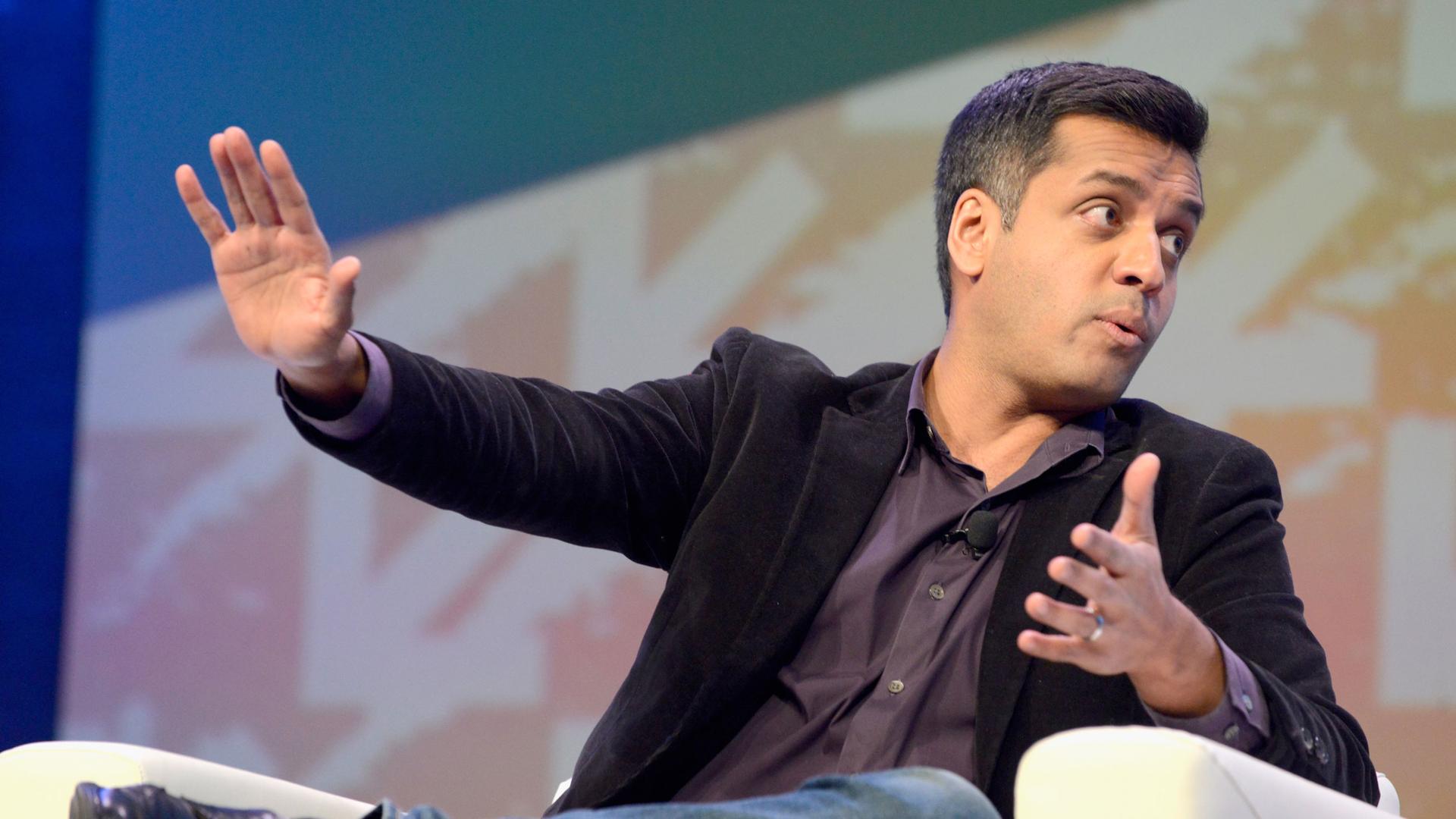Wajahat Ali speaks onstage at SXSW in Austin, Texas, March 11, 2018.
The hardest-hit people by the novel coronavirus pandemic are those losing their loved ones.
But for everyone, it’s the kind of extraordinary event that can test one’s faith.
Wajahat Ali is a writer and lawyer whose Islamic faith was already being severely tested over the past year. He and his wife found out their now 3-year-old daughter, Nusayba, had liver cancer.
Ali spoke to The World’s host Marco Werman about the moment he heard of her diagnosis while he was traveling last spring — and the lessons he has learned from his family’s struggle that he’s now applying to living through the coronavirus pandemic.
Related: Buddhist nun recommends calming the mind to cope with pandemic
Marco Werman: Did you turn to your faith when you found out about your daughter’s diagnosis?
Wajahat Ali: I remember my first instinct was just to make a fist and punch the pillow and yell “no!” And then afterward I did what I call the “universal barter prayer” that all parents do: My life for my kid’s life. Let’s do a trade. And you expect a voice to come back and say, “Oh, that’s a fair trade, 39-year old man with a dad bod with a receding hairline for a beautiful girl. No problem.” But there’s no answer.
And so I sat there alone in my hotel room, and I just remembered, you know, there’s a saying in Islam: First tie your camel, and then leave your trust to God. And that’s the answer to both what’s happened in coronavirus — how we’re going to endure Ramadan — and what happened when I found out about Nusayba. And that basically means you do everything you can in your human power and then you leave it to God. And so that’s the kind of mindset that I had. We will do everything we can in our power to save this little girl. But I will leave it to God.
Related: Music to soothe the soul: Ludovico Einaudi’s “Elegy for the Arctic”
Well, things turned out really well. Nusayba, your, daughter was able to leave the hospital with her new liver — donated, right, by someone you didn’t even know. In your mind, was that God at work or just basic human kindness?
I think you have to take the good with the bad. You have to take all of it, right? Was it God at work? Sure. It was also human kindness at work. It was decency at work. It was science. It was medicine. There were means created that allowed my daughter to live.
Everyone is experiencing challenges in life, some more than others. And I believe you have to take the good with the bad. That’s the perspective that I like to take. And you don’t have to be religious. You don’t have to believe in God. But I just tell everyone that if both of us had put our foot in what I call the emotional mental quicksand, we’d be destroyed. And that quicksand says the following. Why me? Why us? We were good. We did everything right. Why my girl? Damn you, God. F you. F you to the universe. And then you go to a very dark place, a paralyzing place. And thankfully, we avoided that. And I leaned in very hard and very deep to my faith, and it helped me.
So in January, Nusayba was declared cancer-free. And then there was this almost immediate pivot to the coronavirus beginning its deadly path across the world. You believe faith helped you personally through difficult times with your daughter. How does Islam explain why the whole world is suffering through a pandemic?
Yeah. Early January, Nusayba was declared cancer-free, and that’s my wife and I said, “Hey, 2020’s going to be normal.” And lo and behold, here we are now. You know, it’s a good question. Like, how does Islam explain cancer? How does Islam explain global famine? How does Islam explain the Black Plague? How does Islam explain the Holocaust?
I think human beings throughout the history of time, have suffered both as a result of crises and catastrophes, plagues, and as a result of our own cruelty. And throughout, I think Islam and the Koran and Hadiths, the sayings of the Prophet Muhammad, has said that people will be tested and challenged. Each generation has its own challenges. And it’s how you face that challenge and endure that challenge, how you have both gratitude and patience during those struggles. How even in the most immensely trying times, you can still try to be selfless and decent and kind. That is not just a test, but an opportunity. And those who can behave in such a manner, those are the people who are the most favored by God.
And so this is a challenge for our generation, Marco. I mean, 100 years ago they had influenza. The Greatest Generation, had World War II, World War I. This is a unique challenge for our generation, something that we have never seen. And how will we emerge from it? That’s the question I have. Can we actually use this to become better?
My answer to that is yes. And I think each person has a chance to be a hero here. In small ways we can be decent, and maybe that’s how you can be godly as well.
This interview has been condensed and edited for clarity.
